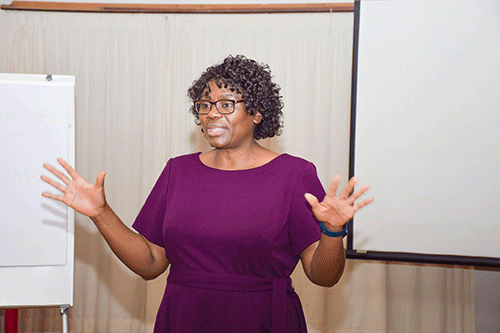Due to the increased interest in investing in Namibia from around the world, the nation has been busy enabling major projects, with more to follow soon. The CEO of the Namibia Investment Promotion and Development Board, Nangula Uaandja, revealed this encouraging information last week.
“We are not going to tell you all the projects that are coming. It will be a surprise, and we have three months of revealing each project case by case, and what they do in terms of numbers. The investments we have been dealing with this year are massive. And yes, of course, we want Namibia to be a place that attracts the right people,” said Uaandja during the commemoration of NIPDB’s 1000 days in office in September 2023.
Earlier this year, the CEO stated that Namibia has secured about N$161 billion worth of investment opportunities as of March 2023, with the potential to create more jobs.
The NIPDB is the national body tasked with public and private sector collaboration to ensure the nation has a business-conducive climate. As part of its core mandate, the NIPDB seeks to attract and retain investments while at the same time promoting Namibia as a place to develop, live, invest and work in.
Uaandja noted that the NIPDB is pursuing collaboration between government and the private sector to deliver value for the country.
She further gave the assurance that the board is working hard to tackle Namibia’s triple challenges of poverty, unemployment and inequality.
Namibian visibility
Uaandja said Namibia’s attraction of foreign direct investment (FDI) has been increasing.
“In 2023, one significant deal completely blew away all the calculations. You can, therefore, already see where we will be in 2023. We have been a pioneer in luring significant projects. And they guide us in forging important ties with the European Union (EU), Japan and Korea, among others, as a nation,” she added.
The organisation continues to be persistently available and travelling globally.
The only way to tell if these international journeys are paying off is to see if investors continue to follow them to Namibia following their stay, Uaandja said, noting that it may be up to two or three years after investor engagements before the investor pays a visit.
“However, what we have observed is that investors have begun to visit us in less time than we had anticipated. That suggests that either Namibians are incredibly convincing, or that Namibia simply attracts people the best,” she beamed.
In an interview with this paper last week, spokesperson of the Namibian Presidency Alfredo Hengari remained optimistic in the face of misfortune, underlining that although the past may have been troubled, there is reason for hope.
“Green hydrogen has emerged as a significant growth driver for our nation. Investments are paying off”, he declared with a positive attitude.
He also emphasised Namibia’s role as a key participant in the energy transition, and the country’s developing status as a hub for green energy. The fact that the nation is officially recognised as a significant oil and gas frontier is added to that. In terms of Namibia’s growth potential and, more crucially, the effects that these advancements are having on opportunities and the struggle against poverty, there is much reason for optimism among Namibians.
Dazzling rankings
According to the most recent FDI Greenfield Index, Namibia was the top African nation for receiving FDI inflows last year.
The country is one of the 10 highlighted, closely followed by Rwanda and Kenya, with Egypt and Tanzania receiving the lowest scores overall.
With a stunning 13th place finish in the FDI Greenfield Index, Namibia has distinguished itself as a standout performer among nations like Costa Rica, North Macedonia and the UAE.
The Greenfield FDI Performance Index, published annually by FDI Intelligence, ranks nations and regions according to how well they do in luring greenfield FDI projects.
Greenfield FDI is the term used to describe fresh investments made by foreign businesses in real estate, such as factories, workplaces, or centres for research and development.
Furthermore, in a different ranking, the African Wealth Report for March 2023 shows that Namibia provides many opportunities for international investors seeking a foothold and growth on the African continent. These include tax incentives, financing and a one-stop bureau service for international companies.
“Namibia offers an attractive territorial tax system, which means that residents will not generally be taxed on income generated outside the country,” reads the report.
It added that tax rates are relatively low in Namibia, when compared to most other African markets. The top rate of income tax in the country is a relatively modest 37%, and perhaps most notably, there is no estate duty or capital gains tax.
The report also referred to Namibia as Africa’s “new frontier”, as the country is expected to be one of Africa’s fastest-growing markets, going forward, with high-net-worth growth of over 60% forecast for the next decade (to 2032).



